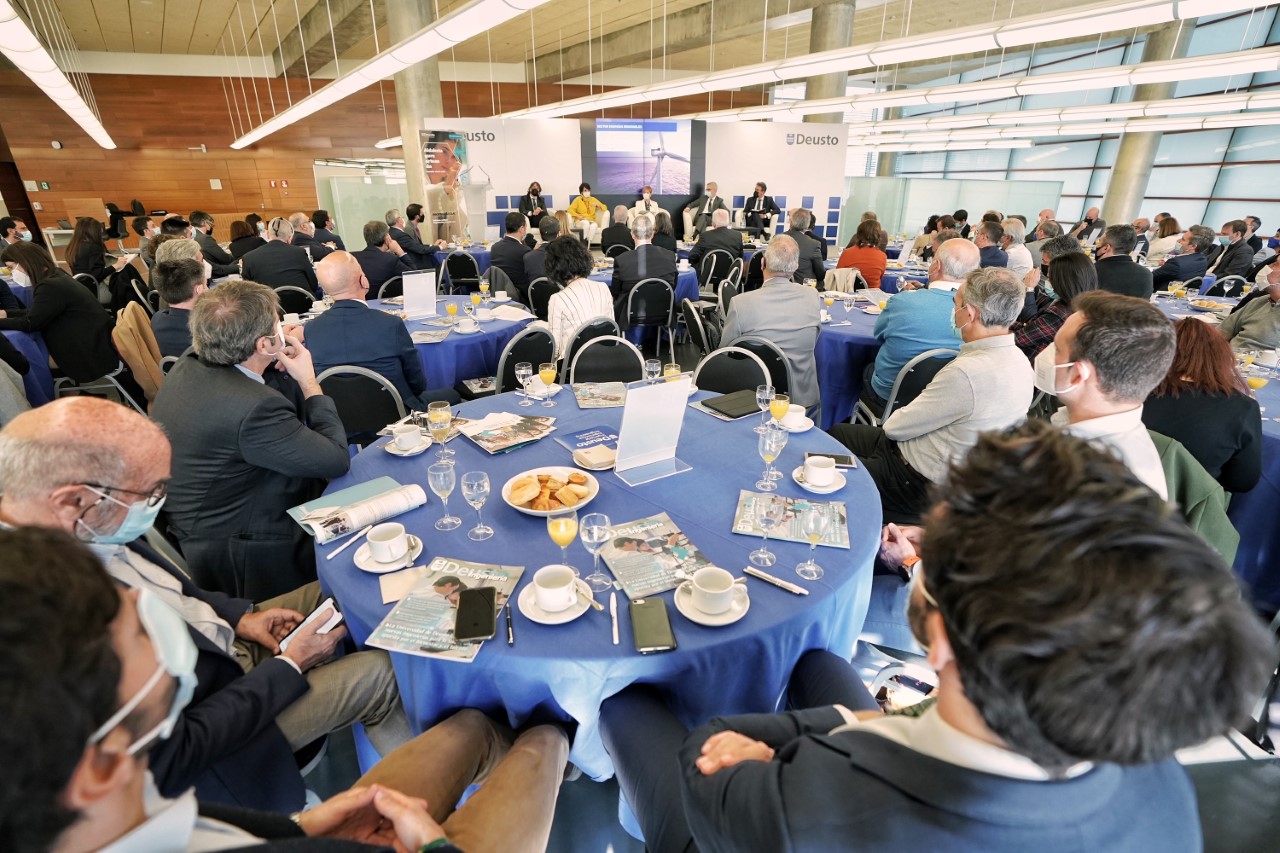Competitiveness, transformation and resilience of Basque industry
The Director of Competitiveness and Innovation at IDOM, Marta Álvarez Ochoa, participated in a round table with Arantxa Tapia, Minister of Economic Development, Sustainability and the Environment of the Basque Government; Manuel Ángel Alonso Pérez, director of the Northern Territory of Telefónica; Elías Unzueta, Chief Innovation Officer of Petronor; and Pablo García Bringas, vice-dean of External Relations and Continuing Education at the university, to talk about the challenges of the Basque industry in terms of sustainability and the historical moment in which we live, within the framework of the Deusto Engineering Breakfast meetings.
Following the pandemic, Basque industry is facing a moment marked by the rise in fuel and electricity prices, supply challenges and a race towards energy independence from third countries that allows the incorporation of new sources of renewable generation. For all this, the integration of variables such as internationalization, innovation, digitization, as well as sustainability and social responsibility will be key factors in the adaptation of companies.
In this sense, Marta Álvarez explained that “long-term competitiveness as we are seeing it in this forum involves adapting to the three transitions (technological-digital, environmental-sustainable, social and health) to which the Basque Government is already guiding all their policies.
For Marta, there are 4 key factors to successfully surviving in an environment of multiple transitions, complex in geopolitical terms:
- The dimension. There are markets in which the “winner takes all” principle prevails (especially those based on platforms that unite supply and demand), which means that large companies will become larger and larger. SMEs must be experts in cooperating and in establishing strategic networks while taking advantage of the advantages that digitalization provides. Policies that encourage cooperation between SMEs, as clusters already do, are still necessary.
- New digital technologies allow smaller players to be great: these technologies are becoming more powerful and more affordable. Today, for 1 euro, you can buy 100 times more computing or data storage capacity than just a decade ago. This effect facilitates access to technology, but it is still necessary to teach companies to use it for their business.
- SMEs can access global markets by relying on an innovation ecosystem such as the Basque one, connecting to the main international networks. The territory (Euskadi) is a competitive factor for Basque companies.
- Sustainability and social responsibility are competitiveness factors, as is capital, talent or innovation. “There is still a long way to go for this to be the case, but the market, financing and people are seeing it that way; companies have to step on the accelerator” pointed out Marta Álvarez.
Finally, in order to internalize and operationalize all this, Marta Álvarez appealed to the need for the cooperation and participation of all. In her words, “the differential factor that will mark competitiveness in the future, in a changing world, will be precisely the union of different people in a common project.”









